Open Research Data in the Field of Phraseology
Aim
The aim of this paper is to investigate the concept of open research data in phraseology. Namely, the key factors of open science within European Union are: digital technology, belief in free circulation and criticism of ideas, as well as considering the role of data by researches. Digital technology nowadays enables a fast exchange and new ways of sharing and accessing the data. The existing exchange of research data in the field of phraseology is usually realized through publications (e.g. research articles, dictionaries). The complexity of the form, meaning and usage provides a challenge for describing phrasemes in lexicographic sources. So far, there are open research data in the field of linguistics, but not phraseology in particular.
The main research questions are: What are open research data in the field of phraseology? Which metadata elements are important for phraseology in the context of openness?
Methods
The analysis was done according to approaches in the field of phraseology (1), demands defined through FAIR principles, and to generic tasks taken by the user referring to: find, identification, select and reuse. The generic tasks derive from the FRBR concept.
The phraseme in digital environment is specified by a digital object, which is described by metadata elements. These elements are analyzed and identified on two levels. The first level refers to scientific content, and the second one is related to its digital representation
Phrasemes of the German and the Croatian language of fashion and football language are used as the corpus for this research.
Results and Discussion
Phrasemes are multiword combinations of various forms whose constituents create a new meaning (e.g. as cool as cucumber, someone’s right hand, under one roof, to be under the weather). Their main features, beside polylexicality, are stability and idiomaticity, i.e. their form is fixed and the meaning is figurative. Moreover, they can be used in stylistically various contexts and can create or attribute to expressivity of texts (2). Phrasemes can be used in various text types, e.g. in journalistic texts, literature, slogans, but are also often used in spoken language. They are considered a challenge in foreign language teaching and especially in translation and transcultural studies, due to the fact that they are usually described as culturally specific. Some phrasemes from different languages share their origin (e.g. the Bible, folk tales, fables), but most of them are language specific.
Considering phrasemes as data means that they are, just like other lexemes of a language, the result of writing down what had been heard, read or written. They can be noted in monolingual, bilingual, or multilingual dictionaries as well as in corpora, and are described according to their meaning, stylistic markedness, and in some cases the context of their use as well as its source are given. The existence of phrasemes as data, besides in dictionaries, can be confirmed in literary works, magazines, newspapers, different types of texts, and in everyday speech. Regarding their figurative meaning, some phrasemes can be linked to concepts such as space or time. They can also serve to entertain, decrease or increase the negative meaning, or to present something vividly. Phrasemes derive from the way of life in a certain period of human history, from cultural specificity, beliefs or customs.
Open research data are the results of scientific research, they can be freely digitally accessed, are published in a machine readable form and can be reused. According to Pampel and Dallmeier-Tiessen (3), open research data are available on the Internet and users can access, copy, analyze, re-process, and use them for any purpose. An important element of open research data are the following FAIR principles: they should be findable, accessible, interoperable, and reusable (4). Sharing research data includes various users, and requirements like searchability, availability, and usage (5). The importance of metadata for open research data is given through various country and research group directions, as well as through scientific research. Metadata are used to present all data related to the content (e.g. what the object includes), the context (e.g. who made the object), and to the structure (e.g. information about the object) (6). In order to access phraseological data or a group of data in the digital environment, they need to be described with the appropriate metadata.
The research identified and described the initial metadata elements that can help to exchange and search phraseological data in digital environments. The elements can be divided in two categories: research and digital representation. The research category consists of the following groups of elements: basic elements, contextual elements, methodological elements, and specific elements: The basic elements comprise the persistent identifier, the author/organization, the source, the phraseme, its meaning, its structure, the phraseological class, the grade of idiomaticity, the grade of motivation, modification, semantic fields, stylistic markedness, and equivalents in different languages. Contextual elements refer to the type of text and topic. Methodological elements refer to descriptive and contrastive method, as well as to the approach of the Systemic Functional Linguistics - Appraisal Theory, all used in the research of the phrasemes of fashion and football language. Specific elements, with regard to the investigated corpus, comprise position in the text, producer of the phraseme, the object described with the phraseme, the behaviour described with the phraseme, loanwords as components, emotions expressed with the phraseme. The second category, the digital representation, refers to datastream and elements related to the version, the organization, legal information and access rights.
Conclusion
This investigation shows that phrasemes can be analyzed as open research data. They have important characteristics and properties for exchange among researchers in the field of phraseology. Basic categories and groups of elements were identified. Further investigation will include the evaluation of results by other researchers and users.
 Gwen FranckEIFL, Lithuania
Gwen FranckEIFL, LithuaniaGwen Franck is consultant and facilitator, interested in the ‘hands on’ aspects of Open Science such open access publishing, self-archiving… More →
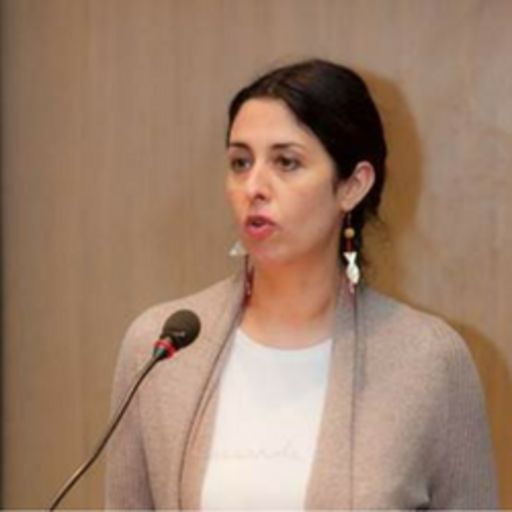 Victoria TsoukalaEuropean Commission
Victoria TsoukalaEuropean CommissionVictoria Tsoukala works as a Policy Officer in the European Commission, DG RTD.G2: Open Science, in Secondment from her position at the… More →
 Adriaan van der WeelLeiden University
Adriaan van der WeelLeiden UniversityAdriaan van der Weel is Bohn extraordinary professor of Modern Dutch Book History at the University of Leiden and lecturer in Book and… More →
 Sami SyrjämäkiFederation of Finnish Learned Societies
Sami SyrjämäkiFederation of Finnish Learned SocietiesDr Sami Syrjämäki is the head of publications at the Federation of Finnish Learned Societies. His expert work focuses on science policies… More →
 Thed van LeeuwenLeiden University
Thed van LeeuwenLeiden UniversityThed van Leeuwen is a senior researcher at the Centre for Science and Technology Studies (CWTS) of Leiden University in the Netherlands. As… More →
 Andrei RostovtsevDissernet, Russia
Andrei RostovtsevDissernet, RussiaProf Andrei Rostovtsev is a Russian physicist, doctor of physical and mathematical sciences. He graduated from the National Research Nuclear… More →
 Vanessa ProudmanSPARC Europe
Vanessa ProudmanSPARC EuropeVanessa Proudman is Director of SPARC Europe; she is working to make Open the default in Europe. Vanessa has 20 years’ international… More →
 Ana MarušićUniversity of Split
Ana MarušićUniversity of SplitAna Marušić is Professor of Anatomy and Chair of the Department of Research in Biomedicine and Health at the University of Split School of… More →
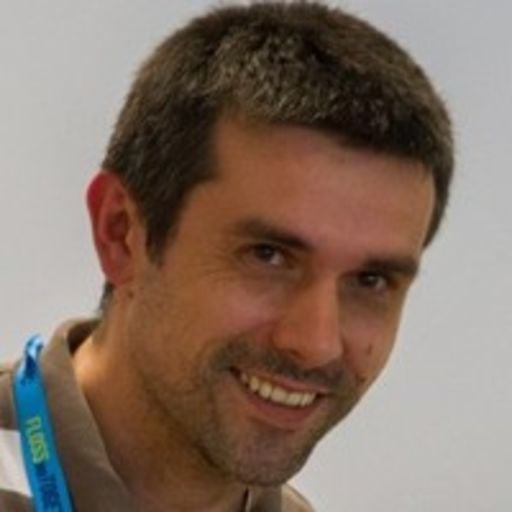 Alen VodopijevecRuđer Bošković Institute
Alen VodopijevecRuđer Bošković InstituteMSc Alen Vodopijevec obtained his diploma in 2003 at the University of Zagreb, Faculty of Social Sciences and Humanities, and currently is… More →
- Anita Pavić Pintarić
 Damien VannsonThunken
Damien VannsonThunkenBuilder at heart, driven by the satisfaction of turning shower thoughts and back-of-the-envelope plans into full-fledged, user-friendly… More →
 Danijel GudeljUniversity of Zagreb
Danijel GudeljUniversity of ZagrebDanijel Gudelj is M.A. of sociology and croatology, graduated at Centre for Croatian Studies, University of Zagreb. Currently, he is a… More →
 Blaž RebernjakUniversity of Zagreb
Blaž RebernjakUniversity of ZagrebBlaž Rebernjak was born in Zagreb in 1983, where he finished primary and secondary schools. In 2007 he obtained his MA and in 2013 his PhD… More →
- Evgenia Arh
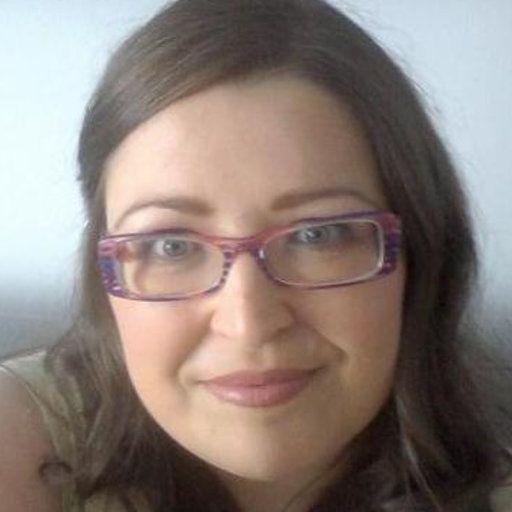 Drahomira CuparUniversity of Zadar
Drahomira CuparUniversity of ZadarDrahomira Cupar, Phd, is an assistant professor at the University of Zadar, Department of Information Sciences. She obtained her PhD in… More →
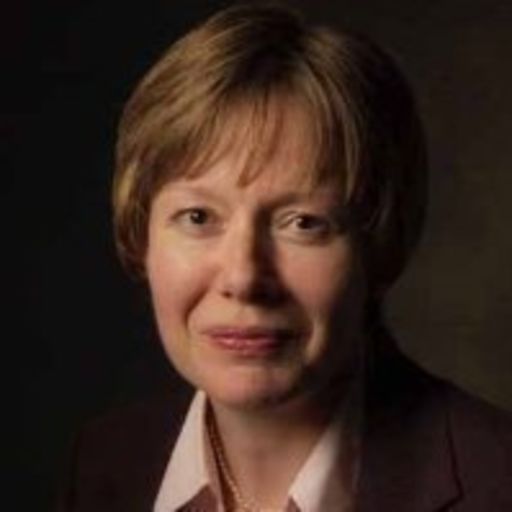 Elizabeth WagerSideview
Elizabeth WagerSideviewElizabeth (Liz) Wager, PhD is a freelance consultant and trainer who has worked on six continents. She chaired the Committee on Publication… More →
 Filip HorvatUniversity of Rijeka
Filip HorvatUniversity of RijekaFilip Horvat is a librarian at the Faculty of Civil Engineering, University of Rijeka. He received his Master’s degree in Information… More →
 Goranka MitrovićNational and University Library in Zagreb
Goranka MitrovićNational and University Library in ZagrebGoranka Mitrović, senior librarian, works at the National and University Library in Zagreb, Croatia (NUL) since 1993. Her research interest… More →
 Draženko CeljakUniversity Computing Centre
Draženko CeljakUniversity Computing CentreMSc Draženko Celjak is the head of data services at SRCE – University of Zagreb University Computing Centre. He coordinates and leads the… More →
 Iva Melinščak ZlodiUniversity of Zagreb
Iva Melinščak ZlodiUniversity of ZagrebIva Melinščak Zlodi works as an e-resources librarian at the Library of the University of Zagreb Faculty of Humanities and Social Sciences… More →
 Ivana MajerUniversity of Zagreb
Ivana MajerUniversity of ZagrebIvana Majer graduated from the Faculty of Humanities and Social Sciences at the University of Zagreb, and got her degree in Croatian… More →
 Irena KranjecUniversity of Zagreb
Irena KranjecUniversity of ZagrebIrena Kranjec works as a subject librarian for information sciences at the Library of the Faculty of Humanities and Social Sciences… More →
 Jasminka MaravićCARNet Department for Education Support
Jasminka MaravićCARNet Department for Education SupportJasminka Maravić is Project Manager at CARNet Department for Education Support. During her 14 years in CARNet she has been involved in… More →
 Krešimir ZauderUniversity of Zadar
Krešimir ZauderUniversity of ZadarKrešimir Zauder was born in Zagreb, Croatia in 1980. He graduated Information science and English language and literature in 2006. In 201… More →
 Jure TriglavCollaborative Knowledge Foundation
Jure TriglavCollaborative Knowledge FoundationJure is the lead developer at the Collaborative Knowledge Foundation, where he develops the PubSweet framework and supports its community. More →
- Josipa Zetović
 Kristina RomićNational and University Library in Zagreb
Kristina RomićNational and University Library in ZagrebKristina Romić works at the Acquisition Department, National and University Library in Zagreb, Croatia. She graduated from the Faculty of… More →
- Ksenija Baždarić
 Ksenija Švenda RadeljakUniversity of Zagreb
Ksenija Švenda RadeljakUniversity of ZagrebKsenija Švenda Radeljak is employed at the Library of Department of Social Work at the Faculty of Law University in Zagreb. The areas of her… More →
 Linda SīleUniversity of Antwerp
Linda SīleUniversity of AntwerpLinda Sīle is doctoral student at the University of Antwerp within the Centre for R&D Monitoring (ECOOM). My current work spans somewhat… More →
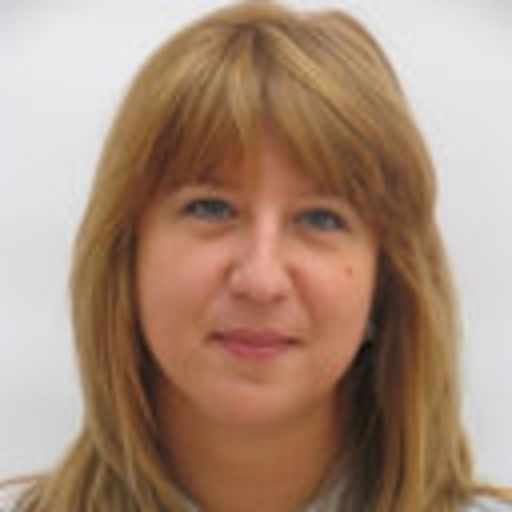 Lovela Machala PoplašenUniversity of Zagreb
Lovela Machala PoplašenUniversity of ZagrebLovela Machala Poplašen is a head librarian at the Andrija Štampar Library, School of Public Health, School of Medicine, University of… More →
- Ljiljana Poljak
 Luc BorutaThunken
Luc BorutaThunkenPh.D. in computational linguistics, natural language processor, interested in linked data and linguistic diversity. In previous lives, Luc… More →
 Ljiljana Jertec MusapSRCE – University Computing Centre, University of Zagreb
Ljiljana Jertec MusapSRCE – University Computing Centre, University of ZagrebMSc Ljiljana Jertec is a librarian and computer specialist at SRCE – University of Zagreb University Computing Centre. She has a Master’s… More →
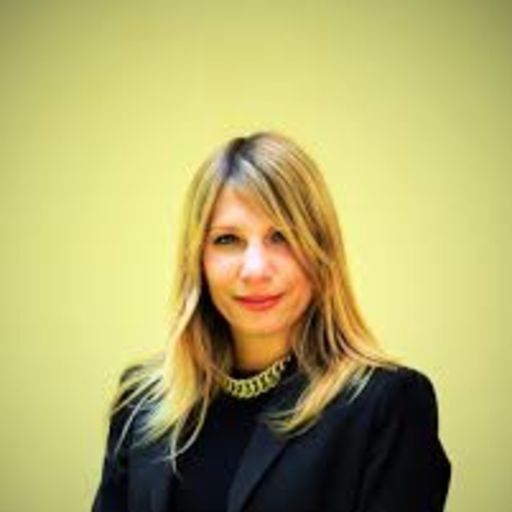 Lucija VejmelkaUniversity of Zagreb
Lucija VejmelkaUniversity of ZagrebLucija Vejmelka is an assistant professor at the University of Zagreb, Faculty of Law, Department of Social Works, where she leads the… More →
- Marijana Briški Gudelj
 Marijana GlavicaUniversity of Zagreb
Marijana GlavicaUniversity of ZagrebMSc Marijana Glavica works as a systems librarian at the University of Zagreb Faculty of Humanities and Social Sciences Library, where she… More →
 Marina Cvitanušić BrečićCroatian Agency for Science and Higher Education
Marina Cvitanušić BrečićCroatian Agency for Science and Higher EducationMarina Cvitanušić Brečić works at the Analytics and Statistics Department of the Croatian Agency for Science and Higher Education (ASHE… More →
 Marina GrubišićCroatian Agency for Science and Higher Education
Marina GrubišićCroatian Agency for Science and Higher EducationMarina Grubišić is the head of the Analytics and Statistics Department of the Croatian Agency for Science and Higher Education (ASHE). She… More →
 Matko MarušićUniversity of Split
Matko MarušićUniversity of SplitMatko Marušić is Professor Emeritus at the University of Split, Split, Croatia. He was a Professor at Medical Schools (in Zagreb and Split… More →
- Nicolas Robinson-Garcia
- Neven Pintarić
 Paulin RibbeOpenEdition
Paulin RibbeOpenEditionPaulin Ribbe is Project Manager for the OPERAS infrastructure at OpenEdition (France, Marseille - CNRS, AMU, EHESS, Avignon Univ.). He holds… More →
 Radovan VranaUniversity of Zagreb
Radovan VranaUniversity of ZagrebBorn in Zagreb, Croatia. Primary and secondary education completed in Zagreb. Croatia. Graduated information sciences and the English… More →
 Rafaelly StavaleUniversity of Brasília
Rafaelly StavaleUniversity of BrasíliaRafaelly Stavale is a current student of Nursing at Universidade de Brasília – UnB. She has recently completed the Principles and Practices… More →
 Olga KirillovaAssociation of Science Editors and Publishers (ASEP), Moscow, Russia
Olga KirillovaAssociation of Science Editors and Publishers (ASEP), Moscow, RussiaOlga V. Kirillova, Candidate of Science (Engineering, 2004), the President of the Association of Science Editors and Publishers (ASEP, since… More →
 Pierre MounierOpenEdition
Pierre MounierOpenEditionPierre Mounier is deputy director of OpenEdition , a comprehensive infrastructure based in France for open access publication and… More →
 Rodrigo CostasLeiden University
Rodrigo CostasLeiden UniversityRodrigo Costas is an experienced researcher in the field of information science and bibliometrics. With a PhD in Library and Information… More →
 Tihana RubićUniversity of Zagreb
Tihana RubićUniversity of ZagrebTihana Rubić is an assistant professor at the Department of Ethnology and Cultural Anthropology, Faculty of Humanities and Social Sciences… More →
 Vicko TomićUniversity of Split
Vicko TomićUniversity of SplitVicko Tomić is a research assistant at the Department of Research in Biomedicine and Health at the University of Split School of Medicine… More →
 Vanessa FairhurstCrossref
Vanessa FairhurstCrossrefVanessa Fairhurst joined Crossref in 2017 and is based at the Oxford office. As Community Outreach Manager, her role involves working… More →
 Želimir KurtanjekUniversity of Zagreb
Želimir KurtanjekUniversity of ZagrebŽelimir Kurtanjek is a retired professor of chemical engineering with an interest in biotechnology, biostatistics and big data analytics… More →
 Vlatka BožičevićUniversity of Zagreb
Vlatka BožičevićUniversity of ZagrebVlatka Božičević gratuated from Religious Pedagogy and Catechetics at the Catholic Faculty of Theology University of Zagreb and the… More →
- Željka Salopek
 Zoran VelagićUniversity of Osijek
Zoran VelagićUniversity of OsijekZoran Velagić is a professor of book history and publishing studies at the University of Osijek, Faculty of Humanities and Social Sciences… More →